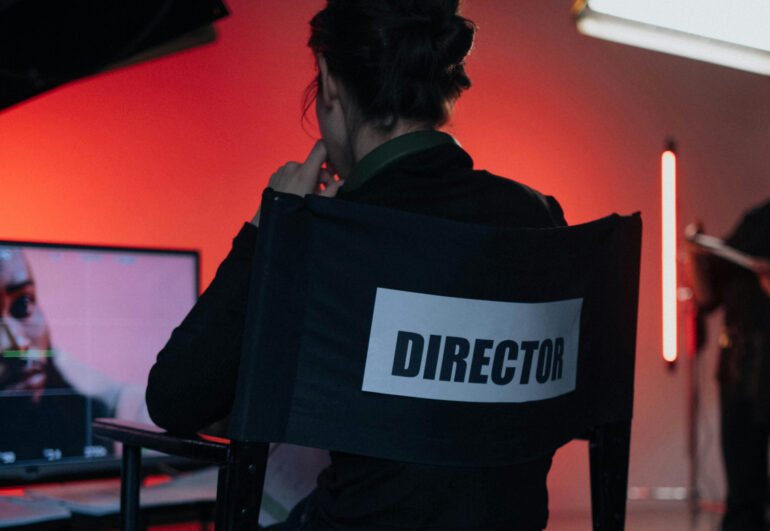Written by: Eva Novrup Redvall
09.01.25
New Danish industry report analyses the future competence needs for fiction and television production, pointing to educating broader creative profiles and better leaders.
The Danish screen industries have been marked by ongoing discussions around the job profiles and competences needed, now and in the future, following a workforce analysis of the Digital Visual Industries (DVI) that in 2021 pointed to a lack of qualified professionals. The analysis addressed how many professionals in the screen industries have learned their craft through on the job peer-to-peer training rather than formal education, and how this tradition is now challenged by technological developments that demand more specialisation.
The 2021 report was used as a call to arms to gather industry stakeholders and educators in a steering committee that set out to formulate detailed job profile descriptions as well as a report to identify possible needs for new educational programmes or adjustments in the existing offers. The result of this work was presented at an industry seminar in December 2024 that pointed to the importance of having a shared language when talking about the work and skills needed across different professions as well as new educational considerations.
Detailed job profiles to create a common ground
The head of the Danish Producers’ Association Anna Porse Nielsen hosted the day, which opened with a presentation of the job profile descriptions as an important step towards having a shared sense of what specific professions are responsible for and need to know.
The descriptions have been inspired by the work of the UK industry-endorsed Screen Skills that offers free e-learning resources on how to get into the screen industries. The detailed job profiles for film and TV drama at the Screen Skills website illustrate how widely different competences are needed in the development, production management, craft, technical, post production or sales/distribution departments, and which jobs are entry level or not. The ambition is to have similar descriptions for the Danish screen industries that can be helpful for the industry as well as for educators.
Adjusting to change across five different themes
Following Nielsen’s introduction, director of Seismonaut Kristian Bernth presented the findings from the new report on the future competence needs in fiction and television production. As stated in the executive summary, the 2020s have seen a move from fighting to attract talent towards adjusting to new conditions and changes. The 69-page report investigates these changes from five overall themes (the market, technological developments, diversity/inclusion, working environment/culture, and sustainable production) focusing on working within development, production, art, image/sound or virtual production.
Broader creative profiles are needed
Based on the comprehensive analysis, the report argues that there is a general need for broader creative profiles with a stronger sense of commercial as well as digital aspects around production. In terms of market changes, the industry is currently under pressure, leading the professionals interviewed to describe an increased demand for both quality and quantity. A focus on high productivity and technological changes means that creative profiles must be able to work efficiently across the traditional value chains, which calls for broader competences and mastering digital tools. Moreover, the analysis points to the importance of creative profiles having a strong commercial sense to be able to clearly link what is to be produced with the target audience, the intended platform and the contemporary market.
Accelerated use of AI and automatisation
In terms of technological change, the report highlights how two out of three respondents find that AI currently has limited impact on their working lives. However, 81% expect that AI will be a widely used tool in five years, with 68% seeing it as important for content production, 67% for data analysis, and 74% for virtual production.
The report argues that AI and automatisation will limit the demand of some roles and profiles, while some might completely disappear. The educational landscape needs to engage with the many different aspects of AI and automatisation, be it in research, production planning or virtual production, to make sure that professionals understand the possibilities and know how to use AI efficiently as well as creatively.
Better leadership/management
Another main point is the need for better leadership, since more complex production processes entail heading and coordinating new work ways and collaborations. This is not only the case when addressing market or technological changes, but also regarding issues of diversity/inclusion, ensuring good working conditions, and moving towards more sustainable production practices.
55% of respondents find that there is currently an increased focus on diversity and inclusion, and 72% expect that this will also be the case in five years. 75% find that there is now attention to ensuring good work cultures and practices, and expect this to continue. Around 60% find that working with more sustainable production has led to new practices, using new technology/materials as well as more documentation, and 80% find that this will be an important part of their future work. All of this points to the importance of having people in charge who can drive and implement change in the best ways possible, and how both traditional film schools, other training programmes and continued education offer the need to consider these issues.
New scheme for continuing education
The many industry professionals and educators attending the launch of the report seemed to generally recognise the findings presented, e.g. commenting on how the screen industries have many middle managers who have never been taught management, and how this ought to change. Several people stressed the need for a wide range of add-on courses, on management as well as technological developments or sustainable production.
Some freelancers stressed how add-on training takes time and costs money, even if there is now a new scheme for continued education (launched in the fall of 2024) with 3 million DKK allocated for acquiring new competences.
In many ways, the extensive report raises more questions than it answers, but there is definitely food for thought in terms of the ongoing discussions around recruitment and retention, as well as education and training for the Nordic screen industries.
As of now, the report has only been published in Danish. To download: CLICK HERE.

